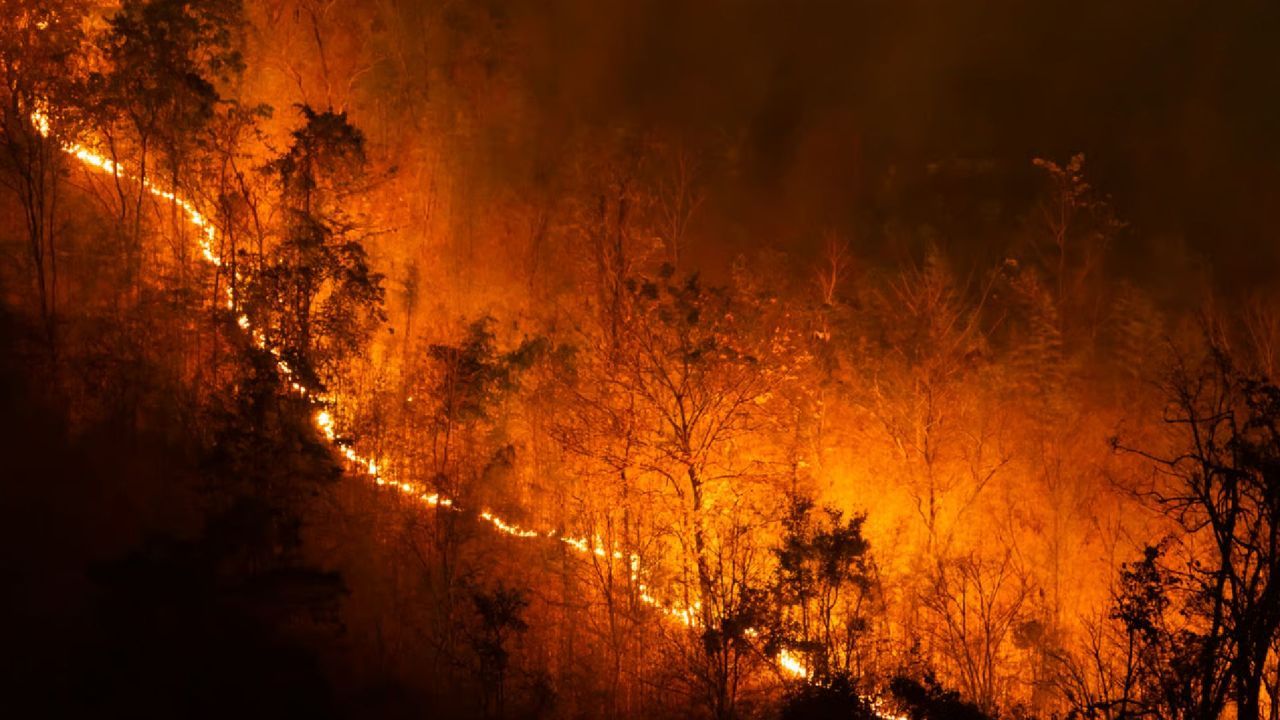World experiences first 12 months with temperatures above 1.5C
Earth has endured 12 months of temperatures 1.5C hotter than the pre-industrial era for the first time, a warning to humanity, according to Europe's climate monitor

Storms, drought, and fires have ravaged the Earth due to climate change, intensified by the naturally occurring El Nino phenomenon, resulting in unprecedented warming in 2023, potentially making it the hottest year in 100,000 years.
The extreme conditions have persisted into 2024, as confirmed by the Copernicus Climate Change Service (C3S), which reported a 1.52-degree Celsius increase in temperatures from February 2023 to January 2024 compared to the 19th-century baseline.
This significant rise in temperature serves as a stark preview of the critical 1.5-degree Celsius warming threshold outlined in the Paris climate agreement. However, scientists emphasize that this does not necessarily indicate a permanent breach of the limit, as it is measured over decades.
Johan Rockstrom of the Potsdam Institute for Climate Impact Research highlighted the substantial impact of reaching 1.5 degrees Celsius, citing the severe consequences such as heatwaves, droughts, floods, intensified storms, and water scarcity worldwide.
Recent months have witnessed a barrage of extreme weather events across the globe, including severe drought in the Amazon basin, unusually high winter temperatures in parts of southern Europe, deadly wildfires in South America, and record-breaking rainfall in California.
Rockstrom warned that humanity is rapidly approaching the agreed-upon 1.5-degree limit, and while temperatures may decrease after the conclusion of El Nino, the trend is cause for concern.
According to Copernicus, last month was the hottest January on record, marking the eighth consecutive month of historically high monthly temperatures, with an overall temperature increase of 1.66 degrees Celsius compared to the January average from 1850-1900.
Samantha Burgess, Deputy Director of C3S, noted that 2024 began with another record-breaking month, with temperatures exceeding 1.5 degrees Celsius above the pre-industrial reference period.
Emissions contributing to global warming, primarily from the burning of fossil fuels, have continued to rise, contradicting the urgent need to reduce them by nearly half this decade. The U.N.'s IPCC climate panel has warned that the world is likely to surpass the 1.5-degree threshold in the early 2030s.
Joeri Rogelj, a professor of climate science and policy at Imperial College London, emphasized the detrimental impact of consecutive hot years on both nature and human populations, underscoring the urgency of reducing global emissions to zero.

‘Off the charts’
Copernicus reported that January temperatures were significantly higher than average in north-western Africa, the Middle East, and central Asia, as well as eastern Canada and southern Europe. Conversely, some regions of northern Europe, western Canada, and the central United States experienced below-average temperatures.
Additionally, while certain areas faced unusually wet conditions in January, parts of North America, the Horn of Africa, and the Arabian Peninsula experienced drier weather.
In Chile, ongoing drought and dry conditions have contributed to devastating wildfires, with recent fires in the Valparaiso region resulting in a tragic loss of life.
The El Nino, responsible for global temperature increases due to warming sea surface temperatures in the southern Pacific, has begun to weaken, while sea surface temperatures continue to break records.
Rockstrom highlighted the unprecedented ocean dynamics in 2023, describing it as "off the charts."
Given that oceans absorb 90% of the excess heat generated by human carbon pollution, hotter oceans lead to more moisture in the atmosphere, resulting in increasingly erratic weather patterns such as strong winds and heavy rainfall.
Source: AFP







